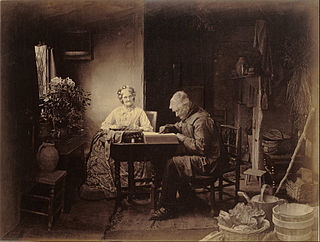A Quote by William Morris Hunt
When an artist leaves his work to amuse people, he loses his time and their respect. If people are to be amused by artists, it must be by employing them in their legitimate occupation.
Related Quotes
The artist seeks contact with his intuitive sense of the gods, but in order to create his work, he cannot stay in this seductive and incorporeal realm. He must return to the material world in order to do his work. It's the artist's responsibility to balance mystical communication and the labor of creation.
He didn't want the respect of people who weren’t worth wiping his nose on—people who weren't worth the spatout gum attached to the bottom of his worn-out shoes. The only respect he wanted was from himself and the people who really mattered in his life. The people who really loved and cared about him.
Anytime you adapt work of somebody who you respect, as much as I respect him, it's an enormous responsibility. In honoring that responsibility, what we try to do is to continually use his work, and the writing that he did about his life and his work, as our guide. That starts with his intent for what he was trying to express when he wrote it, and it extends to his intent overall.
Clearly the hardest thing for the working artist is to create his own conception and follow it, unafraid of the strictures it imposes, however rigid these may be... I see it as the clearest evidence of genius when an artist follows his conception, his idea, his principle, so unswervingly that he has this truth of his constantly in his control, never letting go of it even for the sake of his own enjoyment of his work.
The Irish landowner, partly from laziness but also from an indifferent delicacy, does not interfere in the lives of the people round. Sport and death are the two great socializing factors in Ireland, but these cannot operate the whole time: on the whole, the landowner leaves his tenants and work-people to make their own mistakes, while he makes his.
The poet needs a ground in popular tradition on which he may work, and which, again, may restrain his art within the due temperance. It holds him to the people, supplies a foundation for his edifice; and, in furnishing so much work done to his hand, leaves him at leisure, and in full strength for the audacities of his imagination.








































